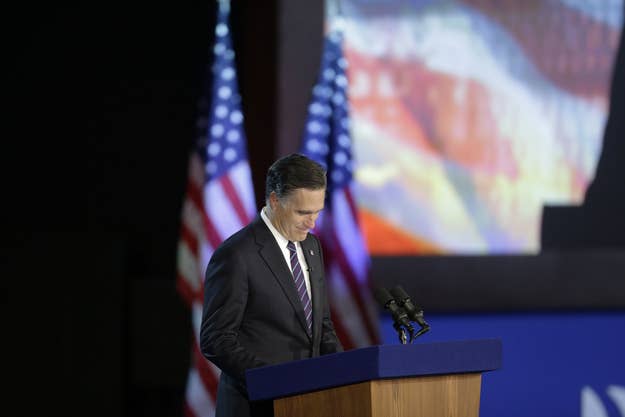
One trader lost at least $4 million betting on former presidential candidate Mitt Romney through Intrade, possibly to make it appear he was faring better against President Barack Obama in the waning days and hours of the 2012 election than he was.
That's what a new study by Microsoft Research's David Rothschild and Columbia University's Rajiv Sethi suggests. The study, published earlier this month, analyzed Intrade transaction level data over the course of the final two weeks of the election cycle.
Intrade is an online exchange where members make bets on various events, notably presidential elections, and is watched closely by political insiders to gauge the strength of a candidate. Intrade was thrust into the spotlight in 2008 when it correctly predicted the outcome of the presidential election.
Rothschild and Sethi found that a single trader accounted for one-third of all bets made on Romney during the two week period of the study, which saw about 3.5 million contracts traded. The total election cycle had 7.6 million contracts traded.
The trader bet solely on Romney and constantly sold on Obama, losing about $4 million in the process.
Those actions effectively created what the study called a "firewall" that kept prices within a defined range and made the race seem closer than it really was.
During the same period prices on Betfair, another exchange that operates similarly to Intrade, were changing rapidly as new information came in while Intrade prices remained within a defined range.
The study says some voters tend to go with who they perceive as the "winning candidate" and will abandon those who they think are likely to lose. Turnout can also be affected by a similar sentiments. Although it was unlikely that this effort had any significant effect on the final tallies, according to the study, it was unusually successful in its ability to manipulate prices on the exchange.
The study says it's possible this trader was simply hedging bets on Intrade to account for bets made in other exchanges such as Betfair, or thought Romney was underpriced, but the authors lean towards the explanation of manipulation.
The "firewall" was created around 3:30 p.m. ET on Election Day and collapsed around 9 p.m. ET when polls closed.
